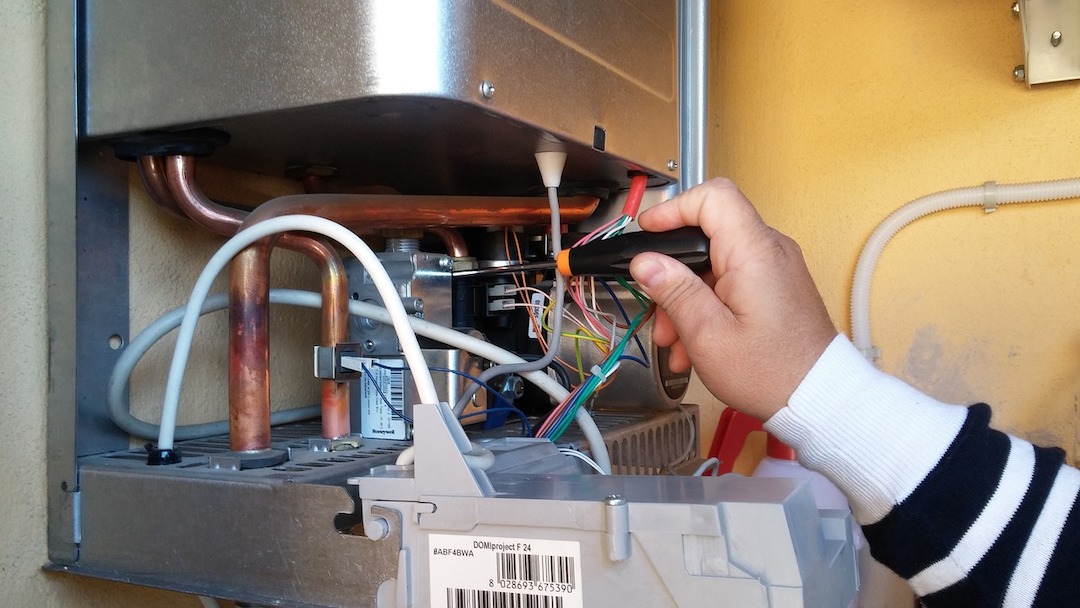Efficient electric hot water heating technologies significantly reduce the carbon emissions of multifamily buildings, according to a report by the American Council for an Energy-Efficient Economy (ACEEE) and New Buildings Institute (NBI).
In multifamily buildings with five or more units, water heating uses more energy than space heating, cooling, or lighting, the report says. Converting gas-fired water heaters to advanced technology—electric heat pump water heaters (HPWHs)—would cut greenhouse gas emissions from water heating by an average of 58%.
If HPWHs are powered entirely by clean sources, they cause zero emissions, making them a critical tool for decarbonizing the economy. Efficient electric water heaters carry a higher upfront cost over gas models, so policymakers would have to provide incentives to owners to make the conversion, the report says.
“Many utilities offer incentives for building or unit owners to install in-unit heat pump hot water heaters,” an ACEEE/NBI news release says. “Yet few programs are designed specifically for multifamily buildings, which offer unique challenges.”
Related Stories
| Mar 30, 2012
CSI webinar: Durable & energy efficient building envelope design, April 24
This seminar will review recent changes in North America energy codes, examples of building enclosure wall assemblies being considered for code compliance, potential moisture management and durability challenges, and design tools that could be used to assess and minimize potential problems.
| Mar 30, 2012
Improved construction that followed seismic codes helped avert loss of life in Mexico temblor
A magnitude-7.4 earthquake that shook Mexico from Mexico City to Acapulco damaged hundreds of homes and sent thousands fleeing from swaying office buildings, yet no one was killed, according to early reports.
| Mar 30, 2012
Chicago may allow people to live in retail spaces
The Chicago City Council’s Zoning Committee approved a zoning change that will allow up to 50% of work space in low-intensity business districts to be used for living space.
| Mar 30, 2012
LEED growing fast in the housing rental market
Last year, developers of 23,000 U.S. multifamily housing units applied for LEED certification.
| Mar 30, 2012
Forest Stewardship Council critical of proposed LEED 2012 changes
According to the Forest Stewardship Council (FSC), the third draft of LEED 2012, if approved as written, would represent a step backward from the current Certified Wood Credit.
| Mar 22, 2012
Symposium on water efficiency: How much more water can be saved?
The Third International Emerging Technology Symposium by IAPMO and the World Plumbing Council features a session on water efficiency.
| Mar 22, 2012
Broker doesn’t have to inform contractor that insurer went broke, California court rules
A California appellate court ruled that an insurance broker did not have a duty to inform a subcontractor that a project’s insurer had gone bankrupt.
| Mar 22, 2012
Public agencies shouldn’t negotiate project labor agreements, says AGC official
When a public agency rather than the contractor negotiates a PLA with unions, it interferes with the right of employers and workers to reach their own agreements on working conditions and benefits, says Steve Isenhart, president of the Associated General Contractors of Washington.
| Mar 22, 2012
Proposed rule would let crane operators get licenses without prior city experience
The Bloomberg administration is considering letting operators of giant tower cranes get their license without requiring that they first run cranes as apprentices in the city for three years.
















